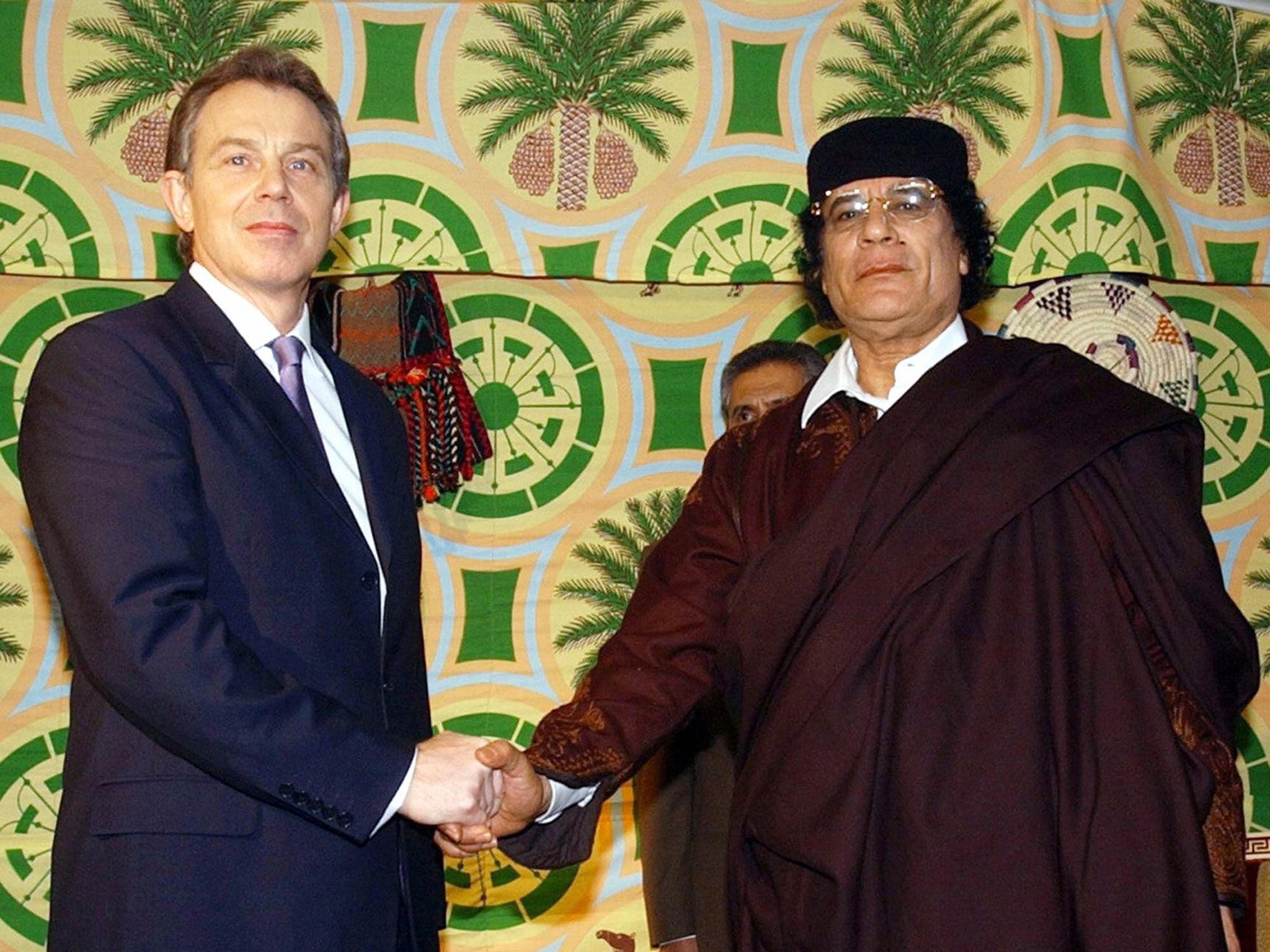Letter between Tony Blair and Colonel Gaddafi revealed as part of documents seized following Libyan revolution
The letter is part of a stash of documents which will be used to launch damage claims against the Government

Tony Blair wrote to then Libyan leader Muammar Gaddafi to thank him for the co-operation between the two nations’ counter-terrorism services, at a time when they were allegedly collaborating in efforts to send dissidents back to the North African country.
In the 2007 letter, the then Prime Minister addressed the Libyan leader with “Dear Muammar” and signed his name: “Best wishes yours ever, Tony”.
The document was among hundreds recovered from Libyan government offices following the 2011 revolution, during which Gaddafi was ousted and killed.
A team of London lawyers has since pieced together the documents on the behalf of a dozen Gaddafi opponents. The papers will form the basis of damage claims launched against the British Government by six Libyan men, the widow of a seventh, and five British citizens of Libyan and Somali origin who allege they were targeted by the two countries' agencies.
The documents allege false imprisonment, blackmail, misfeasance in public office and conspiracy to assault.
Blair wrote the letter - reported in The Guardian - on April 26, 2007, to inform Gaddafi that the UK was about to fail in its attempts to deport two Libyans allegedly linked to the Libyan Islamic Fighting Group (LIFG), which opposed the government.
Mr Blair told Gaddafi: “I trust that you, and your family, are well.
"With regret, I should let you know that the British government has not been successful in its recent court case here involving deportation to Libya. I am very disappointed by the court's decision."
He added: "I believe it is essential that this decision is not allowed to undermine the effective bilateral co-operation which has developed between the United Kingdom and Libya in recent years.
"We have made such progress. It is important, for the good of both our peoples, that we continue to do so, not least in the crucial area of counter-terrorism."
He added: "I would like to add a personal word of thanks for your assistance in the matter of deportation. That support - and the excellent co-operation of your officials with their British colleagues - is a tribute to the strength of the bilateral relationship which has grown up between the United Kingdom and Libya. As you know, I am determined to see that partnership develop still further."
After Gaddafi decided to abandon weapons of mass destruction, the relationship between Libya and the UK had thawed, and it is known that the two countries had co-operated on intelligence matters.
A spokesman for Mr Blair said: "There is nothing secret about the fact that the UK and the then Libyan government co-operated in the fight against terrorism. It was public. Or that the then Libyan government gave up their chemical and nuclear weapons programme and that this happened in 2003 after negotiation.
"At that time the UK was fighting a serious terrorist threat aimed at its people and its soldiers. None of that means the UK Government accepted or condoned torture.
Additional reporting by PA
Join our commenting forum
Join thought-provoking conversations, follow other Independent readers and see their replies
Comments
Bookmark popover
Removed from bookmarks